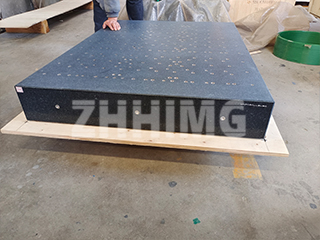Granite gantry components are precision measurement tools made from high-quality stone material. They serve as an ideal reference surface for inspecting instruments, precision tools, and mechanical parts, especially in high-accuracy measurement applications.
Why Choose Granite Gantry Components?
- High Stability & Durability – Resistant to deformation, temperature changes, and corrosion.
- Smooth Surface – Ensures precise measurements with minimal friction.
- Low Maintenance – No rust, no need for oiling, and easy to clean.
- Long Service Life – Suitable for industrial and laboratory use.
Daily Maintenance Tips for Granite Gantry Components
1. Handling & Storage
- Store granite components in a dry, vibration-free environment.
- Avoid stacking with other tools (e.g., hammers, drills) to prevent scratches.
- Use protective covers when not in use.
2. Cleaning & Inspection
- Before measurement, wipe the surface with a soft, lint-free cloth to remove dust.
- Avoid harsh chemicals—use a mild detergent if necessary.
- Regularly check for cracks, chips, or deep scratches that may affect accuracy.
3. Usage Best Practices
- Wait until machinery stops before measuring to avoid premature wear.
- Avoid excessive load on a single area to prevent deformation.
- For Grade 0 & 1 granite plates, ensure threaded holes or grooves are not on the working surface.
4. Repair & Calibration
- Minor dents or edge damage can be repaired professionally.
- Check flatness periodically using diagonal or grid methods.
- If used in high-precision environments, recalibrate annually.
Common Defects to Avoid
The working surface should not have:
- Deep scratches, cracks, or pits
- Rust stains (though granite is rust-proof, contaminants may cause marks)
- Air bubbles, shrinkage cavities, or structural defects
Post time: Aug-06-2025

